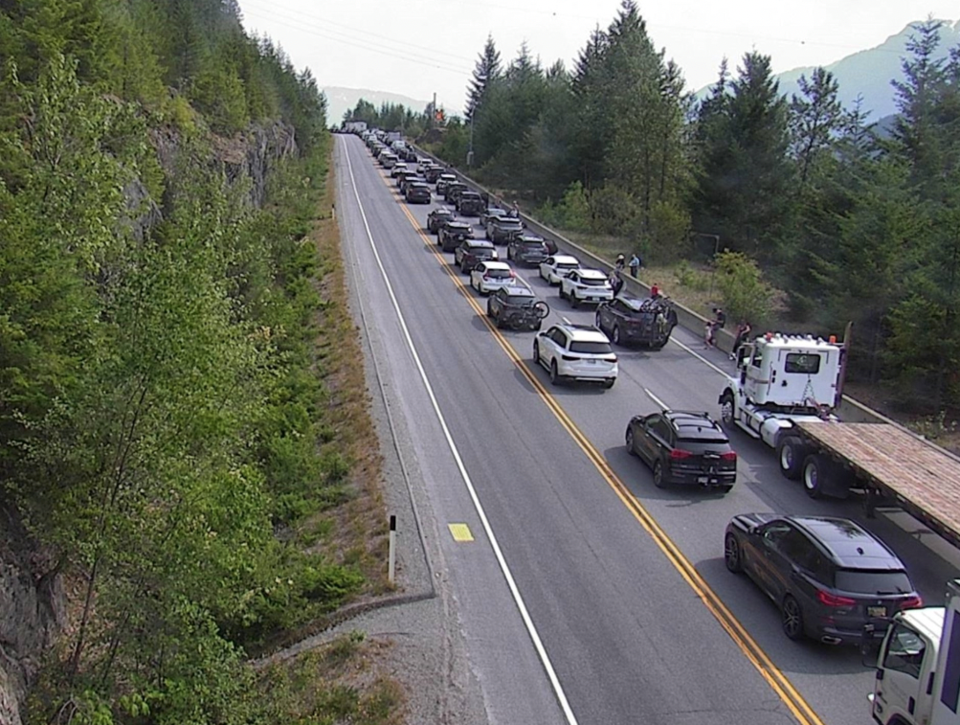Many parents and grandparents can recall when teachers could hit students at school.
B.C. was the first province in Canada to forbid corporal punishment in schools in 1973.
Not long ago, smoking sections in restaurants were common.
It wasn’t until 2008, that B.C. officially banned smoking sections.
You could smoke on a plane until 1994.
These days, these things are hard for us to fathom, and certainly wouldn’t be socially acceptable.
In the future, our collective acceptance of copious vehicle crashes, road closures, car fires and deaths on the road will likely seem equally absurd.
Crashes are so commonplace that the provincial government send out warnings for major highways, including the Sea to Sky Highway, in an effort to reduce hazards over the BC Day long weekend.
We know there will be crashes, and likely deaths on every long weekend.
Why do we accept the carnage?
Between 2013 and 2022, there were an average of 289,500 ICBC reported crashes per year.
According to ICBC, there were almost 70,000 people injured in vehicle crashes in 2023 in B.C.
The BC Coroners Service recorded more than 330 deaths in crashes last year.
In 2022, Canada recorded almost 2,000 road deaths, according to the report Road Safety Country Profiles Canada 2023.
In all of Canada, which has a population of almost 40 million, there were about 20 stranger abductions of children (seven girls, and 12 boys) in 2022.
We rightly are a culture that is very vigilant with children, monitoring them at local parks, at school, walking to and from school, and while outside our own homes.
If someone is seen seeming to be unnecessarily even looking at children, adults will take to social media to “warn” others of the incident.
The fact is, though, that our kids are far more at risk in our vehicles.
“Each year in B.C., an average of 1,300 children aged nine and under are injured, and five are killed in motor vehicle crashes. Every time a child travels as a passenger in a motor vehicle, they are at risk of being involved in a collision,” says ICBC.
Most crashes are caused by speed, driving while impaired (on alcohol or drugs), distracted driving—such as using a cell phone—driving while exhausted, and not using a seat belt, child restraint or helmet.
We have a personal responsibility to reduce road risks, but in the Sea to Sky, we should also look to our politicians vying for our votes in the provincial election this fall for their commitment to finally getting us regional transit, their support for a ferry or rail service, and any other solutions they have to make life safer for us all on the roads.
It is time we made driving mayhem a thing of the past.




